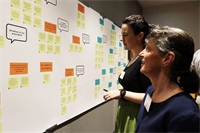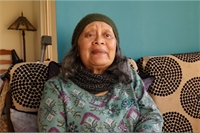05May
Project to develop new model of care for people living with chronic pain is given green light
A project to develop a new model of care for people living with chronic pain has been given the green light.
The new model will be co-designed by people living with chronic pain – a long term condition which often starts as an injury, accident, or illness. They’ll work with primary care and specialist clinicians to develop clinical and social supports for people suffering from chronic pain in the community.
Ken Stewart, clinical lead for the project, says there’s strong evidence that earlier intervention leads to better outcomes for individuals, their whānau and the health system.
“Intervening early during the development of chronic pain can reduce the risk of long-term disability, which means better quality of life for people with chronic pain and a reduction in their needing acute care and specialist interventions.
“We want to mitigate some of those long-term impacts, including having time off work or school and consequently feeling isolated from community activities, or having low self-esteem, poor mental health, difficulties in relationships and socioeconomic disadvantage,” Ken continued.
The project will explore how to support the primary care and allied health workforce to deliver interventions within the community, so that specialist care is available for those who need it the most.
These evidence-based interventions include:
- screening and intervening early to manage pain holistically
- medication management to reduce the development of chronic pain
- the use of personalised care plans (PCPs) and acute plans (APs) to ensure continuity of care for this group of patients
- psychological and physical activity support
- developing capability within the primary care and allied health workforce, supported by specialist advice and expertise.
Developing resources this way means early support will be available for a wider cohort of patients, including for Māori and Pasifika communities where the long-term impacts associated with chronic pain are more prevalent.
“While we can’t always change the pain itself, we want to establish a support system around the person to help them manage their condition and live the best life they can, in much the same way we do for people with diabetes and heart disease,” said Ken.
The project is funded following a successful bid to the Ministry of Health Planned Care Service Improvement Projects in 2021.
About the Author
Related

A project which brings consumers and health providers together to co-design a new model of care for ...
Read More >

Rangi McGlinchey (69) is grateful for the aroha of her whānau and her Te Ao Māori (Māori world) b...
Read More >